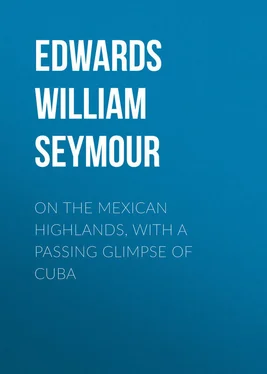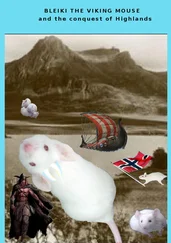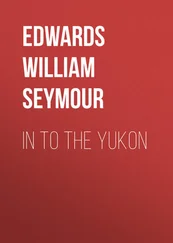William Edwards - On the Mexican Highlands, with a Passing Glimpse of Cuba
Здесь есть возможность читать онлайн «William Edwards - On the Mexican Highlands, with a Passing Glimpse of Cuba» — ознакомительный отрывок электронной книги совершенно бесплатно, а после прочтения отрывка купить полную версию. В некоторых случаях можно слушать аудио, скачать через торрент в формате fb2 и присутствует краткое содержание. Жанр: foreign_antique, foreign_prose, Путешествия и география, на английском языке. Описание произведения, (предисловие) а так же отзывы посетителей доступны на портале библиотеки ЛибКат.
- Название:On the Mexican Highlands, with a Passing Glimpse of Cuba
- Автор:
- Жанр:
- Год:неизвестен
- ISBN:нет данных
- Рейтинг книги:4 / 5. Голосов: 1
-
Избранное:Добавить в избранное
- Отзывы:
-
Ваша оценка:
- 80
- 1
- 2
- 3
- 4
- 5
On the Mexican Highlands, with a Passing Glimpse of Cuba: краткое содержание, описание и аннотация
Предлагаем к чтению аннотацию, описание, краткое содержание или предисловие (зависит от того, что написал сам автор книги «On the Mexican Highlands, with a Passing Glimpse of Cuba»). Если вы не нашли необходимую информацию о книге — напишите в комментариях, мы постараемся отыскать её.
On the Mexican Highlands, with a Passing Glimpse of Cuba — читать онлайн ознакомительный отрывок
Ниже представлен текст книги, разбитый по страницам. Система сохранения места последней прочитанной страницы, позволяет с удобством читать онлайн бесплатно книгу «On the Mexican Highlands, with a Passing Glimpse of Cuba», без необходимости каждый раз заново искать на чём Вы остановились. Поставьте закладку, и сможете в любой момент перейти на страницу, на которой закончили чтение.
Интервал:
Закладка:
I was come to the one-time palace of the Emperor Iturbide, and was welcomed by the American speaking Administrador , in softly accented Louisianian speech.
V
First Impressions of Mexico City
When I awoke this morning, the bare stone walls of my chamber, the stone-paved floor, the thin morning air drifting in through the wide-open casements, all combined to give me that sensation of nipping chilliness, which may perhaps only be met in altitudes as high as these. I am a mile and a quarter in the air above the city of Charleston-Kanawha, a mile and half above the city of New York. By the time I had made my hasty toilet, my fingers were numb with the cold. I put on my winter clothes, which I had brought with me for use when returning to Virginia in January. I also put on my overcoat.
Leaving my vault-like chamber, I passed along the stone-flagged hallways, down the stone flights of stairs, into the stone-paved court, passed out through the narrow porter’s door and found myself among the footfarers on the Calle de San Francisco. It was early. The street was still in the morning shadows. The passers-by, whom I met, were warmly wrapped up. The rebozos of the women were wound about the head and mouth. The zerapes of the men were held closely about the shoulders and covered the lower face. Overcoats were everywhere in evidence, and scarfs shielded the mouths of the Frenchly uniformed police. All these were precautions against the dread pneumonia, the most feared and fatal ailment of Mexico.
I entered a restaurant kept by an Irishman speaking with a Limerick brogue, but calling himself a citizen of the United States. I came into a high, square room with stone walls, stone floor, windows without glass, with many little tables accommodating three and four. Here were a few Americans with their hats off, and many Mexicans with their hats on. A dish of strawberries was my first course, the berries not very large, a pale pink in color, very faint in flavor. These are gathered every day in the year from the gardens in the neighborhood of the city. My coffee was con leche (with milk). I asked for rolls and a couple of blanquillos (eggs) passados por agua (passed through the water, i. e. soft boiled). For a tip, cinco centavos (five cents in Mexican, equal to two cents in United States) was regarded as liberal by the Indian waiter. Upon leaving the wide entrance, I found the shadows fled and the sunshine flooding its white rays upon the street.
Leaving my overcoat in the hotel, I took my way toward the lovely Alameda Park, where, choosing a seat beneath a splendid cypress, I sat in the delicious sunshine and watched the moving crowds. Many droves of mules, laden with products of the soil, were coming into the city. Later in the day, these same carriers of freight go out again, laden with merchandise for distribution to all the cities and villages of the mountain hinterlands.
An Indian mother passes by, her baby caught in the folds of her rebozo . I toss her a centavo , and she allows me to kodak herself and child.
A handsome man riding a fine, black horse, pauses a moment at the curb. He is gratified that I should admire the splendid animal. He reins him in, and I capture a view.
A rancherro in all the gaudy splendor of gilt braid, silver-laced pantaloones , and costly saddle, behung with ornaments of trailing angora goat’s wool, draws near me. He permits me to photograph his fine sorrel horse, but will never allow me to take himself face to face. He halts, that his animal may be admired by the passing throngs; he chats with friends who linger by his side, but whenever I try to catch his face he wheels about.
The dulce sellers bearing sweets in trays upon their heads; the flower venders carrying baskets piled high, such roses as only veritable trees may yield, come also within the vision of my kodak.
Later, I take my way to the Plaza Grande, fronting the Cathedral, and there again catch glimpses of the life of the city. Here are men bearing upon their shoulders casks, apparently filled, bales of garden produce, crates of chickens. Every sort of portable thing is here borne upon the human back. Now and then one or another seats himself upon the stone and iron benches and engages in gossip. Of these, also, my camera makes note.
Later in the morning, I saunter through many streets, inquiring my way to one of the great markets. Here I linger, going about from stall to stall and taking a picture as my fancy urges. A policeman, uniformed like a Paris gendarme , eyes me curiously, comprehends the power of my camera, and comes up to me smiling. He drives back the crowd, calls up his companion-in-arms and stands at attention, begging me to send him a copy of the picture. A group of errand boys, who carry large flat baskets, and will take anything home you buy, attracted by the mysterious black box, line up and motion that their pictures also be taken. The instantaneous movement of the shutter strikes them with wonder, when, throwing a few centavos among them, I catch them now struggling for the coin. I have become the center of attraction. The swarming street crowd crushes about me, all eager to face the magic instrument, till I am fain to call upon my policemen friends to fend them off.
Standing there, joking with my guardians and keeping the good will of the increasing mob, I am accosted by a tall, thin-bearded gentleman in rusty though once fashionable black. He speaks to me in French. He is from Paris, he says; and Ah! have I really been there in Paris! Très jolie Paris! He also enjoys coming to the markets, and wandering among the stalls, and watching the people, and noting their habits and their ways. He guides me about among the different sections, commenting on the fruits and vegetables and wares. When we have spent an interesting hour, he invites me to share a bottle of French wine, a delicious claret, and then, lifting his hat, bids me adieu and is lost forever among the swarming multitudes.
There is so much to see in this ancient city, so much to feel! It is so filled with historical romance! As I wander about it, my mind and imagination are continually going back to the pages of Prescott and Arthur Helps, whose histories of Spanish invasion and conquest I used to pore over when a boy, and to the tragedies which Rider Haggard and Lew Wallace so graphically portray. I scarcely dare take up my pen, so afraid am I of retelling what you already know. I am ever seeing the house tops swarming with the dark hosts of Montezuma, hurling the rocks and raining the arrows upon the steel-clad ranks of Cortez and his Christian bandits as they fight for life and for dominion in these very streets below.
I stood, this morning, within the splendid cathedral, built upon the very spot where once towered the gigantic pyramid on whose summit the Aztec priests sacrificed their human victims to their gods, while down in the dungeons beneath my feet, the Holy Inquisition, a few years later, had also tortured men to their death, human victims sacrificed to the glory of the Roman Church. An Aztec pagan, a Spanish Christian, both sped the soul to Paradise through blood and pain, and I wondered, as I watched an Indian mother kneel in humble penitence before an effigy of the Virgin, and fix a lighted taper upon the altar before the shrine, whether she, too, felt clustering about her, in the sombre shadows of the semi-twilight, memories of these tragedies which have so oppressed her race.
On these pavements, also, I review in fancy the serried regiments of France and Austria marshaled in the attempt to thrust Maximillian upon a cis -Atlantic Imperial throne. In this day, one recalls almost with incredulity the insolence of this conspiracy by European Monarchy to steal a march on Western liberty, when it was thought that democracy was forever smitten to the death by civil war. But the bold scheme was done to death by Juarez, the Aztec, without Sheridan’s having to come further south than the Rio Grande.
Читать дальшеИнтервал:
Закладка:
Похожие книги на «On the Mexican Highlands, with a Passing Glimpse of Cuba»
Представляем Вашему вниманию похожие книги на «On the Mexican Highlands, with a Passing Glimpse of Cuba» списком для выбора. Мы отобрали схожую по названию и смыслу литературу в надежде предоставить читателям больше вариантов отыскать новые, интересные, ещё непрочитанные произведения.
Обсуждение, отзывы о книге «On the Mexican Highlands, with a Passing Glimpse of Cuba» и просто собственные мнения читателей. Оставьте ваши комментарии, напишите, что Вы думаете о произведении, его смысле или главных героях. Укажите что конкретно понравилось, а что нет, и почему Вы так считаете.












